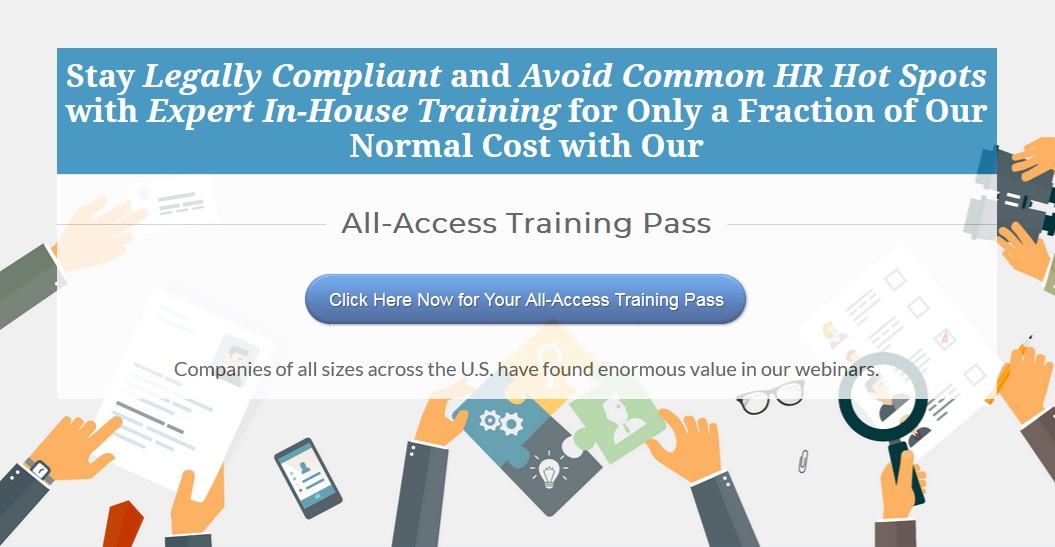Frequently asked questions answered by Anniken herself:
Should we get employees’ signatures every time we update the handbook?
Yes. Any time you make a change, you want to make sure you have your employees’ acknowledgment that they received the change. This is much easier if you move to an electronic version of your handbook rather than a print one. This is also one reason why you should have your revisions on a regular schedule, so you can better track them.
With electronic handbooks, are changes handled as an addendum or is the policy changed entirely?
You can simply make the change, send an email out to all the individuals and tell them to review the changes by a specified date.
We have a number of employees who aren’t well versed in English. Do we have to have the handbook translated into other languages?
Not necessarily the entire handbook, but there are specific OSHA rules for safety provisions that state if you have safety rules in your handbook, they do have to be translated into whichever language is spoken by the employees who are affected by them. If you have many new employees who do not speak English, you may want also want to have a translator available during orientation to go through the documents with them. You don’t want to be in a position where later in court, someone is challenging that they understood what was in the arbitration agreement. You want to make sure you can say you had someone available who was able to translate at the time.
Is it acceptable to refer to an introductory period during an employee’s first 90 days of employment?
“Introductory period” is preferable to “probationary period.” However, you must still look at why you have an introductory period, probationary period, initial period, etc. You should look at why you have this period and what is its purpose. Do not refer to it as “permanent” after it is over. Use words like “regular employee” as opposed to using words that could be misconstrued.
Can we fire someone for not signing a general acknowledgment of a policy or policies?
It depends on why he or she isn’t signing. Is it because he or she has a specific objection? Is it because of disbelief of engaging in contracts? Pass the situation by your company’s counsel before firing the employee or not acknowledging a contract. Not acknowledging doesn’t mean it doesn’t exist, but you need to know why the employee won’t sign.
Can the handbook be treated as confidential?
Calling the handbook “confidential” implies that people can’t discuss its contents, which is a violation of the National Labor Relations Act. You can safeguard the handbook’s contents by placing it on a password-protected site.
Test your knowledge!
 The use of this seal confirms that this activity has met HR Certification Institute’s® (HRCI®) criteria for recertification credit pre-approval.
The use of this seal confirms that this activity has met HR Certification Institute’s® (HRCI®) criteria for recertification credit pre-approval.
 Business Management Daily is recognized by SHRM to offer Professional Development Credits (PDCs) for SHRM-CP or SHRM-SCP.
Business Management Daily is recognized by SHRM to offer Professional Development Credits (PDCs) for SHRM-CP or SHRM-SCP.
